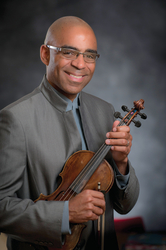 ICSOM continues to provide many important services to its members and does so on a shoestring budget. Just a few of these include the annual Directory, Senza Sordino, annual summer conferences in cities of ICSOM orchestras, member-at-large online and phone call discussion groups, orchestra-l, delegate-l, the ICSOM Electronic Media Committee, site visits by the chair or other governing board member, the Emergency Relief Fund, settlement bulletins, access to legal counsel, and more. All of this is made available to ICSOM members for a fraction of typical union work dues. ICSOM operates on member dues that are approximately one-tenth of one percent of annual salary or 0.1%.
ICSOM continues to provide many important services to its members and does so on a shoestring budget. Just a few of these include the annual Directory, Senza Sordino, annual summer conferences in cities of ICSOM orchestras, member-at-large online and phone call discussion groups, orchestra-l, delegate-l, the ICSOM Electronic Media Committee, site visits by the chair or other governing board member, the Emergency Relief Fund, settlement bulletins, access to legal counsel, and more. All of this is made available to ICSOM members for a fraction of typical union work dues. ICSOM operates on member dues that are approximately one-tenth of one percent of annual salary or 0.1%.
Perhaps one of the most important services ICSOM provides is the Call to Action for member orchestras embroiled in labor stoppages that have disrupted operations in Atlanta, Columbus, Detroit, Honolulu, Jacksonville, Louisville, Minnesota, Saint Paul, and Syracuse. ICSOM member orchestras and our friends throughout the AFM and elsewhere have contributed over $1.5 million to help our colleagues stave off draconian measures imposed by misguided boards and managers.
For this report, though, I would like to focus on another ICSOM service, our partnership with the Sphinx Organization.
ICSOM has long been integrally involved in programs that provide assistance to minority musicians. From 1976-2001, ICSOM supported the Music Assistance Fund, which the New York Philharmonic established in 1965 to provide scholarship support to minority classical musicians. The program later came under the supervision of the American Symphony Orchestra League, now named the League of American Orchestras.

Aaron Dworkin
Photo credit: Kevin Kennedy
In 1997 Aaron Dworkin created the Sphinx Organization, which he continues to lead. ICSOM delegates enjoyed the opportunity to meet Aaron during his presentation at the 2011 ICSOM Conference in Detroit. He received a MacArthur fellowship in 2005, and recently was tapped by President Barack Obama to be Obama’s first nominee to the National Council for the Arts.
The Sphinx Organization has grown and had an ever-increasing role in musical education as well as the composition of orchestras across the United States. In 1998, when Sphinx was just getting started, 1.16% of the members of America’s top orchestras were African-American musicians. In just 10 years that number has more than doubled to 2.4%. Before Sphinx there were no dedicated African-American and Latino orchestras. Now, Sphinx has two. Even compositions by African-American and Latino composers have steadily increased since Sphinx began its mission, to “transform lives through the power of diversity in the arts.” Aaron and his team of staff, artists, and sponsors continue to provide meaningful opportunities to realize this mission.
In 2002, the League and the Sphinx Organization in partnership established what is now the Sphinx Music Assistance Fund, which has developed into a broad series of offerings, including a summer education program, the Instrument Fund, the College-Bound program and MPower scholarships. Sphinx recently named thirteen recipients of the 2014 MPower Artists Grants, with awards ranging from $3,000 to attend the Sitka Cello Symposium all the way to $40,000 to present a semi-staged performance of Wading Home, an opera based on the recipient’s novel of New Orleans with the same title.
The Sphinx Organization also sponsors the Sphinx Competition, which promotes the development of string performance experience among African-American and Latino youths. The competition is open to all junior high, high school, and college–age Latino and African-American string players. Unlike many competitions, Sphinx strives to provide a nurturing education environment for these talented young players by offering audition and performance experience, various training activities, and mentoring opportunities with jury members. They also work with the Sphinx Symphony, composed of African-American and Latino musicians from top professional orchestras around the country.
All competition participants receive scholarships towards their educational pursuits through the Sphinx Music Assistance Fund, and those demonstrating need are eligible to receive the use of a quality instrument through the Sphinx Instrument Fund.
Since 2002, ICSOM has provided scholarship awards in the amount of $500 to each year’s Sphinx Competition senior semi–finalists. These awards may be applied for music education expenses during the year, including school tuition, private lessons, summer music school expenses, and acquisition and maintenance of a primary string instrument.
Besides the Competition, Sphinx also administers many other programs, including:
- The Overture Program delivers access to musical education in Detroit and Flint, Michigan. Sphinx instructors offer beginning violin lessons at no cost to the students and provide instruments for their use.
- The Sphinx Performance Academy provides aspiring African-American and Latino string players (ages 12-17) with a full-scholarship chamber music and solo performance program.
- Classical Connections has a nation-wide reach helping teachers implement musician education in school curriculums. This program has been set up throughout southeastern Michigan, Atlanta, New Orleans, Nashville, Miami, and New York City. It is interesting to note that some of the orchestras in these areas either have minority fellowships or include Sphinx Competition winners on their educational series as soloists or both.
This year’s Competition will be held January 27-February 1, 2015 in partnership with the Detroit Symphony Orchestra and Max M. Fisher Music Center. ICSOM is proud to continue its partnership with the Sphinx Organization and to support its mission. For more information please visit http://www.sphinxmusic.org/





